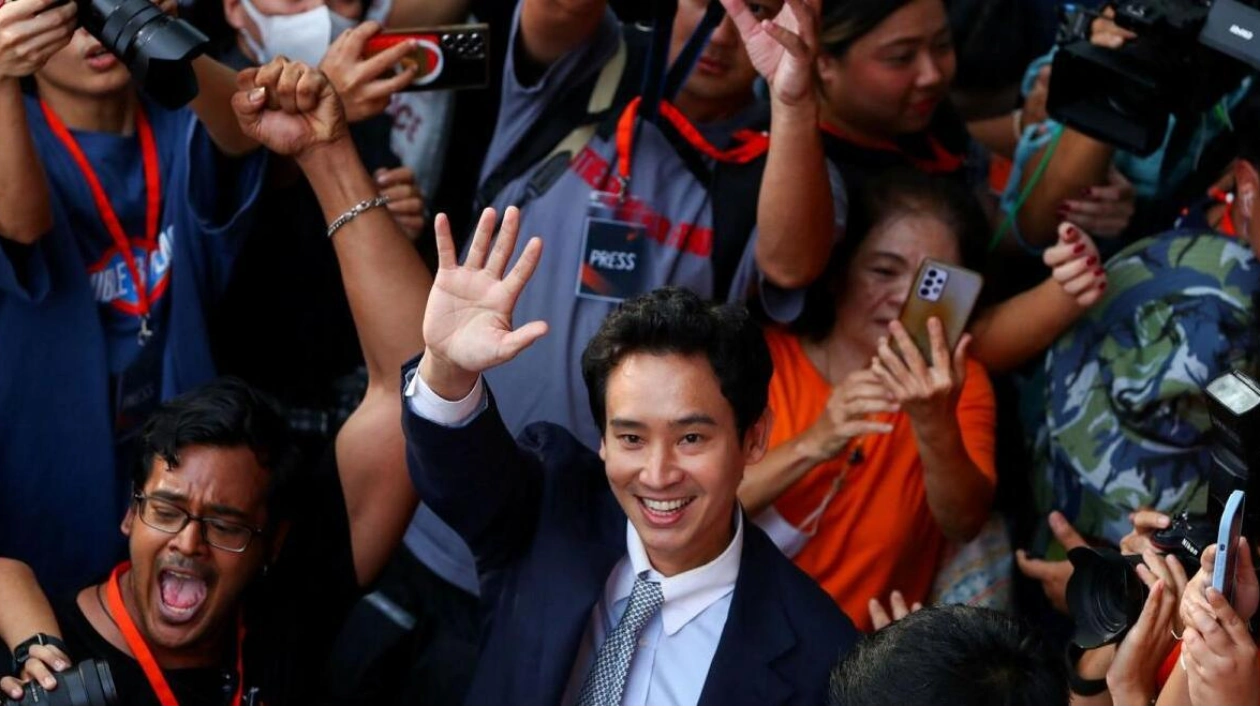Thailand's Constitutional Court on Wednesday ordered the dissolution of the anti-establishment opposition party Move Forward, ruling that its campaign to amend a law protecting the monarchy from criticism risked undermining the democratic system. The disbandment of Move Forward, which secured the most seats in the 2023 election, marks another setback for Thailand's major political parties engaged in a two-decade struggle for power against a coalition of influential conservatives, wealthy families, and the royalist military. The decision, which included a 10-year political ban for 11 party executives, comes six months after the same court ordered Move Forward to abandon its plan to reform a law on royal insults, deeming it unconstitutional and a threat to the governance system with the king as head of state. In a unanimous ruling that referenced the court's January decision, the judges stated that Move Forward had improperly used the monarchy to gain an electoral advantage, placing the palace in conflict with the people.
King Maha Vajiralongkorn has been on the throne for seven years. The monarch is constitutionally positioned as being in a state of "revered worship," and the palace is viewed by royalists as sacrosanct. Insults towards the monarchy are punishable by up to 15 years in prison. Move Forward has consistently denied any intention to undermine the royal family. Although the dissolution is likely to upset millions of young and urban voters who supported Move Forward and its progressive agenda, the ruling's impact is expected to be limited. The party's remaining 143 lawmakers will retain their seats in parliament and are anticipated to reorganize under a new party, similar to what occurred in 2020 when predecessor Future Forward was disbanded over a campaign funding violation.
Move Forward's influential rivals united to prevent the party from forming a government last year, but the progressive movement remains a political force and a challenge to the status quo, committed to pursuing a platform that includes military reform and dismantling business monopolies. However, the party is not yet clear of difficulties, with 44 of its current and former politicians, including 26 legislators, facing a complaint to an anti-graft body by conservative activists seeking lifetime political bans over the campaign to change the royal insults law. Some supporters are calling for protests against the decision. At Move Forward's headquarters, loyalists expressed both disappointment and disbelief at the ruling.
Amnesty International called the ruling an "untenable decision" and accused authorities of relentlessly harassing the political opposition. Move Forward's disbandment occurs at a critical juncture in Thai politics, with tensions also emerging in the uneasy truce between the military-backed establishment and another long-time rival, the populist ruling party, Pheu Thai. Pheu Thai has borne the brunt of Thailand's enduring crisis, with four of its prime ministers ousted by coups and court rulings, and three previous incarnations dissolved by courts, leading to sometimes violent street demonstrations.
The Constitutional Court will next week decide on a case brought by 40 conservative former senators seeking to dismiss Prime Minister Srettha Thavisin over his appointment of a lawyer who served time in jail to his cabinet. Srettha denies any wrongdoing. Tycoon Srettha's case is among factors that have heightened political uncertainty, with the potential for political upheaval if he is removed. A new premier would need to be voted on by parliament, potentially setting Pheu Thai against coalition partners and leading to a reshuffle of the governing alliance and realignment of cabinet and policies.






